Ford's Dej Vu Moment, Part 2

In the nineteen-eighties, Ford CEO Donald E. Petersen's recipe to save Ford from near-bankruptcy was "higher quality products… emphasizing smaller, more efficient cars." It worked, propelling Ford past Chevrolet to world-record profits. Current CEO Allan Mulally is banking on essentially the same ingredients: de-emphasize trucks and rejuvenate the car palette with global platforms largely designed in Europe. Ford's future, perhaps its very existence, is riding on it. Is the recipe still golden?
Ford's strategy is essentially defensive, conservative and obvious. The big truck/SUV paradigm that propelled Ford to outsized profits in the nineties is broken. Ford neglected its car lines, and never bothered to learn how to produce small cars profitably. It became distracted with Jaguar and the ill-fated Premium Auto Group (PAG), at the expense of Lincoln. Quality gains unraveled with disastrous transmission and head gasket problems. And the foresighted "world car" platform plans, beginning with the 1980 Escort, were unraveled by corporate fiefdoms running amok. The result was a Balkanization of car platforms.
Centralizing development and unifying Ford's global car line-up is a necessary and essential move fordward, but it's hardly a "Bold Move." There's no guarantee that the cars will be hits.
Ford's handsome new Mondeo is already in trouble in Europe, selling at lower volumes than its predecessor. Every time Ford (and Opel) attempts to go upscale in Europe, they run into a glass ceiling, where the premium brands aggressively shove downwards with their own smaller models. Ford's global Focus and Fiesta are attractive and competitive products. But expectations for their success stateside may be inflated. In the Euro-zone, the Astra is a credible competitor to the Euro-Focus and VW Golf. Setting aside questions about profitability, the imported Astra's hardly setting the U.S. market on fire.
The same forces shrinking Ford's market share in Europe are increasingly at work here. Whereas in the eighties Mercedes and BMW were decidedly upscale, they too are pushing downwards, along with Audi, Lexus and Infiniti. And that's just the premium brands putting on the squeeze from above, keeping potential profit margins for Ford-brand vehicles in the thin end of the wedge.
In terms of direct competition, 1981 looks positively idyllic compared to 2008. In the eighties, the Japanese were limiting imports voluntarily. The Koreans were where the Chinese are today: just getting warmed-up for the attack on the U.S. market.
Ford has no realistic hope of recreating the 20+ percent share of the passenger car market in the eighties. Those days are gone, forever. The volume-brand market is fragmenting dramatically. The advantage accumulated by Toyota and Honda is staggering. Ironically, their top-selling Camry and Accord are not global cars, but targeted US models. The tables have turned, and Ford is taking on the role of an "import.. But the solidly entrenched transplants are not going down easily like Ford and GM once did.
The best Ford can hope for is to hang on to its current share, trying desperately to offset its shrinking truck and SUV sales. And the thin profits from smaller cars are going to be a big let-down from the $10+k per vehicle Ford once minted with its trucks and SUV's.
Ford bet the family farm on the original Taurus, and won big. But there's no repeating that gamble. The mid-size car market is mature. The only gamble in that segment was made by Toyota with its Prius, and it paid off.
In 2005, Billy Ford promised to build 250k hybrids per year by the end of this decade. A year later, he recanted. Meanwhile, Toyota is closing in on a million hybrids per year. Ford builds 25k hybrid Escape/Mariners annually, keeping the volume low, below market demand, because it can't make any real money on them. Ford backed away from its bold hybrid gamble. It has the technology, but failed to crank-up production and wring out the costs for eventual profits, a la Toyota. A distinctive Focus-based hybrid sedan built in quantity could have been a genuine Prius competitor.
Yes, the hybrid Fusion is coming, but it's too little, too late. Ford is not really committed to volume hybrids, unwilling to spend its dwindling cash reserves on chasing difficult profits. And except for the obligatory show-off plug-in version of the Escape, Ford has absolutely nothing in the hopper regarding electric cars, having sold off its Think EV division years ago.
If oil prices settle down a bit, Ford's strategy may buy them some time. But if Peak Oil really is lurking around that bend in the road, and/or there is a substantial shift in consumer demand for EV's and hybrids, Ford is screwed. Every other major global manufacturer (Chrysler excepted) has serious hybrid, EV and battery development projects in high gear.
In the eighties, Ford made some genuine bold moves, faced less intense competition, and benefited from falling oil prices. History doesn't necessarily repeat itself.

More by Paul Niedermeyer
Latest Car Reviews
Read moreLatest Product Reviews
Read moreRecent Comments
- MaintenanceCosts Whenever the topic of the xB comes up…Me: "The style is fun. The combination of the box shape and the aggressive detailing is very JDM."Wife: "Those are ghetto."Me: "They're smaller than a Corolla outside and have the space of a RAV4 inside."Wife: "Those are ghetto."Me: "They're kind of fun to drive with a stick."Wife: "Those are ghetto."It's one of a few cars (including its fellow box, the Ford Flex) on which we will just never see eye to eye.
- Oberkanone The alternative is a more expensive SUV. Yes, it will be missed.
- Ajla I did like this one.
- Zerofoo No, I won't miss this Chevrolet Malibu. It's a completely forgettable car. Who in their right mind would choose this over a V8 powered charger at the rental counter? Even the V6 charger is a far better drive.
- Offbeat Oddity Nope, I won't miss it. I loved the 2008-2012 Malibu, but the subsequent generations couldn't hold a candle to it. I think the Impala was much more compelling at the end.
















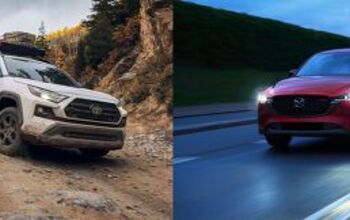

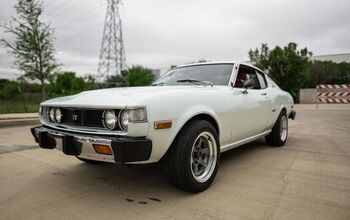
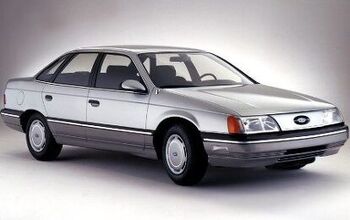


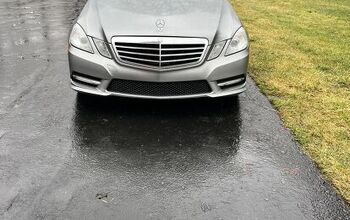









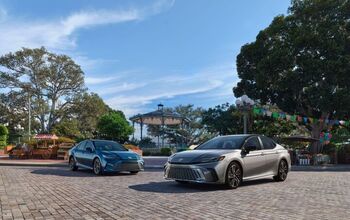

Comments
Join the conversation
As others have said Ford's, and GM and Chrysler's, problem is letting good products rot. The original Taurus is and A1 example. I was 7 when my grandmother got her 1988 Taurus GL, and at 7 I loved that car. I marveled at the rear seat armrest. When I was able to drive I was going to buy a Taurus. It was a good car, it has some problems, but we kept it for 9 years. Got a 1997 Taurus, I actually liked the look of it, but the quality was terrible. The transmission shifted crudely, and the brakes were awful. We replaced power door lock motors like toilet paper. Replaced that with a 2002 Taurus, pushed for my grandmother to buy a Camry V6 instead, but she fell hook, line, and sinker for the 0% financing. If she had the Camry though she would have had some resale value in the car and a more refined driving experience. Next Ford introduced the Contour/Mystique combo. They were great cars, loved by the enthusiasts and Consumer Reports, but too small. So, unlike Mazda, who is bringing a larger Mazda6 to replace the great, but too small current model, they abandon the cars. Lastly, the Focus, it started out great but went down in flames. A friend of mine who only likes cars based on cuteness, and has only driven Hondas, drove a friends 2000 Focus ZX3 and said it was fun. Maybe if the quality and reputation was improved she would have bought one, but instead of nurturing the Focus they starved it.